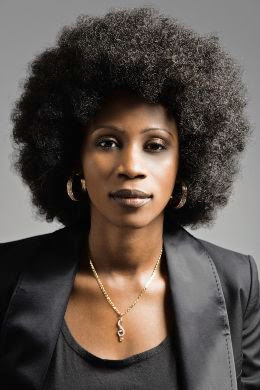When I first glanced at the guests of Afrikadag, the first thing I noticed was the visible present of women. It is not like I expected only men, but since our history tells only 50/% (men) of the story and the other 50% (women) are left out of our history books, it is refreshing to see women power at #Afrikadag. It is about time the brave women of the world gets their push forward. I was wondering who are those women, what are the names behind the faces and what makes them extraordinary. I didn’t have to look too long. Everyone who follows me on Twitter knows I AM A SUPPORTER OF THE ARAB REVOLUTION! So I had to be present at “Revolutions in North Africa: will the spark jump South?”, with guest speakers Egyptian activist lawyer Ragia Omran and Esraa Fattah. I was pleased to be in the present of these courageous women. They have fought, they have protested and they have been imprisoned. You are dead wrong if you think Islamic women are playing their household role and leave the fight for the men.
Ragia Omran: Woman has always been involved. It’s not an historic new thing that women were involved in the revolution. Women have always been active in Egypt’s public life and political participation of women in politics. It was natural and not a special thing.
Ragia Omran is an activist, human rights lawyer and chairwoman of the New Woman Foundation. The NWF is a non-governmental feminist organization. I was amazed how at ease she talks about revolution. When she was pressed on the prospect of brotherhood taking over and turning the clock back indefinitely, she grips at the host and the media’s naivety:
If the new rulers attempt to oppress women or try to push them back they will face a tough fight. For years the media has underestimated the role of women in the Arab world. They are too focused on the Islamic role of the women in general.
Esraa Fattah, also known as The Facebookgirl, became worldly known during the uprising in Egypt with her internet activism. What many don’t know is that this woman started her activism in the 90’s, when she wanted to change her country for the better. She is bold and although she very well knows the consequences of her actions, she continued her activism. She ended up in jail in 2008, but reemerged as a public figure during the uprising in Egypt. She is on the shortlist for the Noble Peace Prize this year. She too seems not amused of the questions about the role women played in the Arab Revolution.
“We cannot specify rules for women in a revolution, women can do everything.”
Other notable power women at #Afrikadag are Kirsten van den Hul (UN Women’s Representative), Sister Fa (Senegalese Hip-Hop artist and activist), Tineke Ceelen (Refugee Foundation) and Kasha Nabagesera (Ugandan LGBT Rights Activist)



